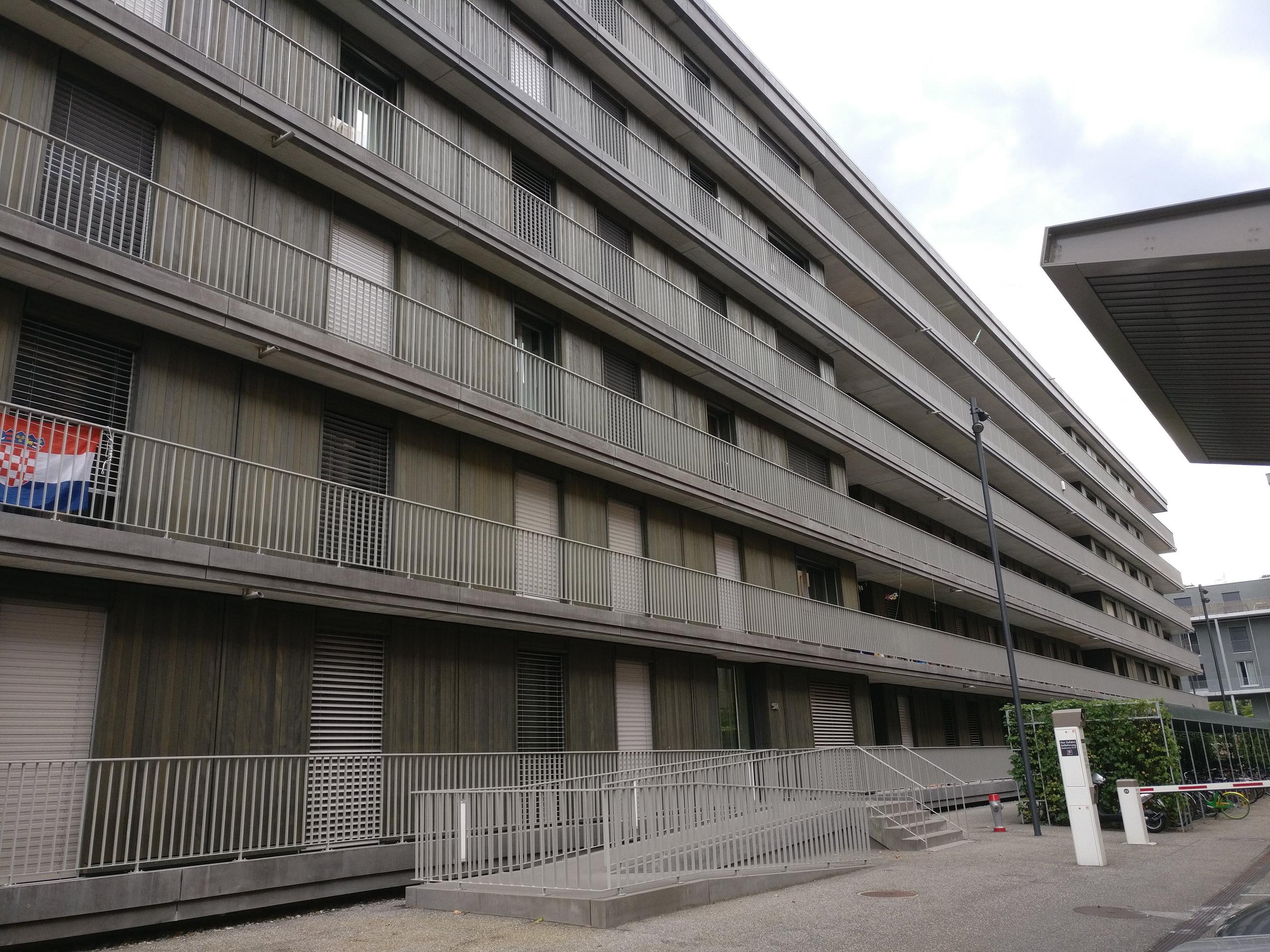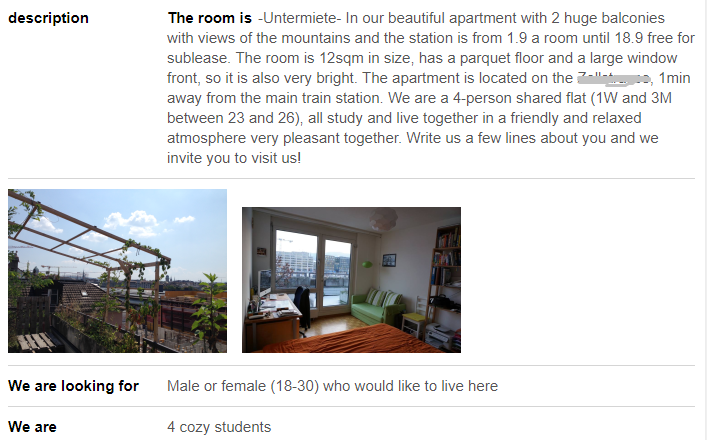Preparing to battle for a roof over my head!

Everybody wants affordable accommodation in expensive Zurich. Devendra prepares himself to enter the city's cut-throat housing market.
If someone tells you that it is extremely difficult to find good, moderately priced accommodation in Zurich, he is right on the money! Finding a decent house has been by far one of the toughest things for me.
First let me explain the Swiss housing situation, specifically in Zurich. A typical flat in Zurich can be very costly to rent. From an Indian standpoint, a studio apartment usually costs upwards of INR 70,000 (CHF982) a month. Unless you are super rich or earn a Swiss income, it is of course unaffordable. Where do the students live then?
In a WG or Wohngemeinschaft, as they call it in German. It literally translates to shared apartments. The concept is exactly like India, only much more ubiquitous. Unlike India, there are not many student hostels here. Therefore, almost all the students, Swiss and foreign alike, end up in a WG. However, your flatmates need not always be students. To save some money, quite a lot of working professionals prefer to stay in a WG as well.

In order to rent an apartment, one has to have a reliable credit history, so that the owner can trust you’ll pay the rent. As a foreign student, I obviously didn’t have any Swiss credit history. So directly approaching a houseowner and asking him for a flat was a tough task. However, there are various independent organization, like “Woko”, which help students with a subsidised room in a WG.
The tenants in such WGs always keep changing, as they either graduate or cease to meet the eligibility criteria for a subsidised WG. The process of selecting a new flatmate has a typical Swiss direct democracy flavour attached to it. When a flatmate leaves, other tenants have the right to choose the person who will take his place. However, at any point in time, there are always more buyers than sellers. An advertisement for a flatmate usually ends up receiving more than 20 applications. During February and September, when there is a huge influx of new students, the number can go upto 100.
Fortunately, for most of the students coming from outside Europe, my university ETHZ provides accommodation. I also got one. However, it is usually limited to only one semester. Therefore, I got an opportunity to learn “The art of apartment hunting”. A few scary firsthand accounts shared by acquaintances prompted me to begin the search asap. I started browsing through the adverts almost four months before I had to quit my university accommodation. Although there are many more, I used two websites for the search: WgzimmerExternal link and WokoExternal link. Most of the listings for students can be found on these. There weren’t many options available initially.
This is how a typical advert on Wgzimmer looks like (This is a translated version, most of the adverts are in German).

Most of the adverts were looking for someone who could move in after two months. Probably it is the standard notice period here. A few of my friends advised that I should also consider moving in a month early, as it is difficult to get a room in the peak season. There is always a possibility to sublet my current accommodation for a month. So, I widened my window.
Now comes the interesting part; application and WG casting. The entire concept of applying for a room seemed strange to me at first. How should I frame my application? What is “WG casting”? I shall explain my next blog post. Stay tuned.
If you want to ask Devendra a question or share your own experiences as a student in Switzerland, join our Facebook group Indian Students in SwitzerlandExternal link.

More
Meet our student bloggers

In compliance with the JTI standards
More: SWI swissinfo.ch certified by the Journalism Trust Initiative










You can find an overview of ongoing debates with our journalists here . Please join us!
If you want to start a conversation about a topic raised in this article or want to report factual errors, email us at english@swissinfo.ch.